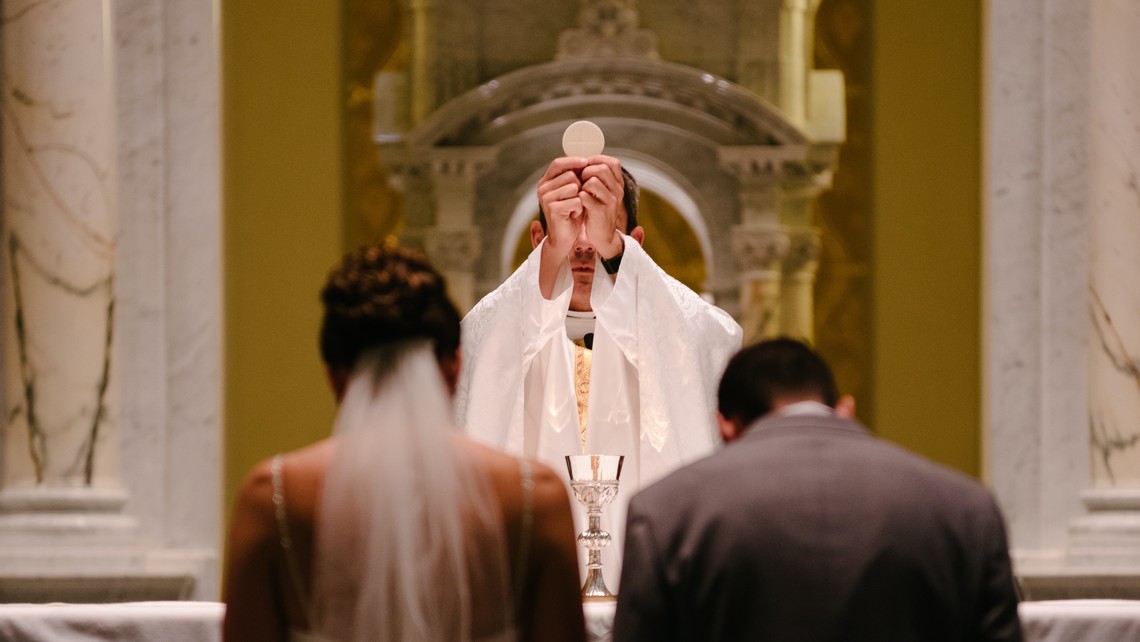
A visible concern resonated from the young lady’s face as she began to express her desire for marriage. Her fiancé equally expressed concern as he listened to what she had to say about their relationship and the fear of engaging in a lifelong and permanent relationship with one another. The conversation shifted toward their relationship with Jesus Christ, which to their honest admission, had not been a focus of their relationship. The idea that Jesus Christ would serve as a pivotal mediator in their relationship had not been discussed.
With their first marriage preparation session about to end, I asked the future groom if he had any post-thoughts about the night he proposed to his future bride. He appeared surprised and curious about the question as his fiancé also expressed a sense of curiosity. His response was quite simple, “I simply wanted to marry her.” He then asked, “what else is there in the proposal?”
I explained that a wedding proposal is not simply a singular “yes, I will marry you” experience for both the bride and groom. The significance of a marriage proposal unveils a carefully discerned act of faith that professes an openness to invite Jesus Christ into the marriage covenant. Encompassed in the “yes, I will marry you” process is the proclamation to sacrifice, suffer for one another, and embrace each other’s wounds and struggles in the name of Jesus Christ. After a brief pause, both said they had not considered the entire proposal act in that way.
The genesis of the proposal act
The Genesis account of creation reveals a specific accommodation given to Adam and Eve by God to live in harmony with Him. Created in God’s image and likeness, Adam and Eve receive an indelible mark that reflects God’s love and intimacy toward his children. The uniqueness of Adam and Eve’s character and nature is that both become one flesh.[1] The significance of this act of love reflects both a duty and responsibility to display reverence toward one another actively. The exercise of marital reverence is intimately bound to the conjugal act and the procreation of children. The Catechism of the Catholic Church I argue describes the genesis of the marriage proposal in the following way:
God, who created man out of love, also calls him to love—the fundamental and innate vocation of every human being. For man is created in the image and likeness of God who is himself love. Since God created him man and woman, their mutual love becomes an image of the absolute and unfailing love with which God loves man. It is good, very good, in the Creator’s eyes. And this love which God blesses is intended to be fruitful and to be realized in the common work of watching over creation: “And God blessed them, and God said to them: ‘Be fruitful and multiply, and fill the earth and subdue it.[2]
From proposal to consent, from consent to “I do.”
The profession of faith involved in a marriage proposal expresses a willful desire between man and woman to seek a lifelong marriage covenant. The proposal serves as the initial proclamation of marriage between the bride and groom. As the couple progresses through their journey, the affirmation of the proposal is fulfilled through the act of consent, where both the bride and groom proclaim and confirm their desire to marry one another freely without any act of coercion or deception on the part of both parties. Hence, the progression toward the consent to marry is validated through the “I do” during the rite of marriage. The culmination of the entire spiritual anatomy of the marriage proposal resides in the final proclamation of faith between both spouses to marry one another before the eyes of God. The Rite of Marriage affirms this proclamation with the following description:
Since it is your intention to enter marriage, join your right hands, and declare your consent before God and his Church. . . You have declared your consent before the Church. May the Lord in his goodness, strengthen your consent and fill you both with his blessings. What God has joined, men must never divide.[3]
The spiritual anatomy of a marriage proposal is parallel to the catechumenate, where a person desires to investigate the truth of the Catholic Church. And during that investigation, the person finds himself being drawn to the truth, beauty, and goodness of the Catholic Church, culminating in full initiation into the Catholic Church. The journey toward marriage is not an inquiry but an investigation into the truth of marriage and the reality of being involved in an indissoluble union.
I conclude with the following prayer by St. John Chrysostom, who provides us with a clear context of the spiritual anatomy of a marriage proposal with the following prayer reflection.
When we speak of the wife obeying the husband, we normally think of obedience in military or political terms: the husband giving orders, and the wife obeying them. But while this type of obedience may be appropriate in the army, it is ridiculous in the intimate relationship of marriage.
The obedient wife does not wait for orders. Rather, she tries to discern her husband’s needs and feelings, and responds in love.
When she sees her husband is weary, she encourages him to rest; when she sees him agitated, she soothes him; when he is ill, she nurses and comforts him; when he is happy and elated, she shares his joy. Yet such obedience should not be confined to the wife; the husband should be obedient in the same way.
When she is weary, he should relieve her of her work; when she is sad, he should cherish her, holding her gently in his arms; when she is filled with good cheer, he should also share her good cheer. Thus, a good marriage is not a matter of one partner obeying the other but of both partners obeying each other.
St John Chrysostom






